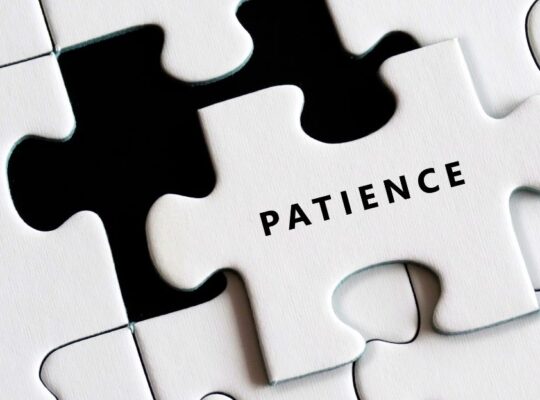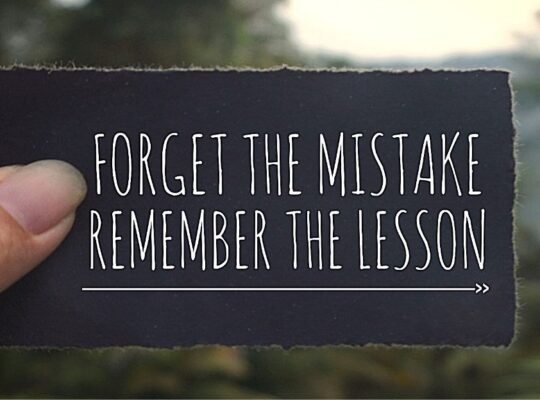We all have regrets from time to time. These regrets can be centered around a variety of things, from relationships to career decisions to personal experiences. Having regrets is a normal part of the human experience.
However, when those regrets begin to affect our lives to the point that they interfere with our mental, emotional, and even physical health and begin to have an effect on other areas of our lives, it’s safe to say that we may need to reevaluate.
Harboring regrets can be truly debilitating so learning how to cope with and release regrets we may have is essential to living a freer and happier life.
What Are Regrets
Regrets can be defined as an adverse emotion that is felt when a person is under the belief that his or her past actions or behaviors would have achieved a more favorable outcome if those behaviors or actions were altered.
Generally, regret is closely related to feelings of guilt and shame. In addition to being a negative emotional state, regret also involves the construction of an alternative behavior or decision, even if the alternative behavior or decision would have been highly unlikely or impossible.
Regrets tend to be characterized by negativity about the past in general, and often a specific incident in the past and often involve a high degree of self-blame. The feeling of regret is typically a long-term emotion that people often feel unable to eliminate.
Types Of Regret
All regrets are not the same. There are various types of regrets we as individuals can be dealing with. At times we could even be dealing with more than one type of regret. Knowing what types of regrets there are can help us adequately identify and address them so that we can move on to freedom.
In general, regrets can be sectioned into 2 primary categories- regret by action and regret by inaction. Regret by action is regretting a choice or decision made in the past. Regret by inaction is regret caused by a failure to make a decision. Some common characteristics of regret and its intensity are as follows:
The Near-Miss Effect
The closer a person comes to achieving a goal, the greater the regret experienced. For instance, coming in second place in competition would breed more regret than coming in fourth place in the same competition.
Lost Opportunities
Many people often have regrets related to opportunities they failed to take during their lifetime. The ‘what ifs’ about how things could have been and the belief that they could have been better tended to drive people to feel heavy regret, especially as they get up in age.
Feelings Of Responsibility
The more control a person felt they had over the outcome of an event, the greater the regret one tends to feel if the outcome turns out negatively. This tends to be seen in instances where a person had control over a choice that led to the outcome or could have made a choice that would have led to a more positive outcome.
Social Belonging
There are also greater feelings of regret when it comes to decisions that threaten one’s sense of social belonging as opposed to those in less social domains. For instance, decisions that impact our sense of belonging in a romantic relationship or family relationship lead to more regret than those involving work or educational environments.
Changeable Decisions
Decisions that can be reversed can also be a source of regret. Reversible decisions interfere with our ability to justify our choices, leading to a decrease in satisfaction.
Impact Of Regrets
Holding onto regrets can affect us in a variety of ways. Those impacts can be mental, emotional, physical, and relational.
1| Poor Mental Health
One of the major impacts of regret in our lives is poor mental health. Regret is often associated with increased levels of anxiety, varying degrees of guilt, chronic feelings of sadness and dysphoria, increased feelings of shame, and intense feelings of anger.
2| Decreased Happiness
Because regret leads to feelings of shame and sadness, regret can greatly limit happiness. Often, the negative emotions associated with regret and the negative impacts it tends to have on mental health can contribute to depression and promote additional feelings of regret that were not originally present.
3| Poor Physical Health
Research has shown that regret can have a negative impact on physical health as well. Holding onto regret can lead to chronic stress which negatively affects hormone and immune system functioning. The impact on the immune system makes people more susceptible to illnesses such as the common cold or the flu.
Additionally, the impact of elevated stress on the hormones can increase the heart rate, raise blood pressure, disturb the digestive process, and disrupt normal blood glucose levels. Headaches, migraines, and chronic pain can also be linked to high levels of stress which can result from harboring regrets.
Depression which is often experienced in conjunction with regret can also lead to physical ailments. Depression can lower libido, exhaustion, and chronic fatigue. As previously mentioned, depression is another condition that can decrease the function of the immune system leading to a higher instance of sickness.
4| Limits Potential
Regret can significantly limit potential, as holding onto regrets can make you feel as though you cannot move forward. When your focus is constantly on the past and what could have or should have been done, it deviates focus away from current and future goals and pursuits. This often limits people and keeps them from being able to make forward progress in their lives.
5| Alters Personality
Many people who have regret becomes so focused on that regret to the point that it completely changes who they are. The constant negative focus can breed bitterness, rage, hatred, and other negative emotions that impact how a person engages with others and experiences the world. Over time, regret can completely change who a person is and generally leads to a more miserable and less pleasant individual to encounter.
6| Poor Interpersonal Relationship
Negative emotions such as regret and those that coincide with regret (i.e., anger, resentment, etc.) are linked to breakdowns in interpersonal relationships. Unaddressed regret can impact communication and connectivity making it hard to connect or relate to others.
Regret can also lead to self-isolation, making it difficult to engage and connect with others as well. Those who cannot resolve regret tend to avoid intimate relationships and the desire to associate with others.
7| Lack Of Fulfillment
A person constantly living in a state of regret will undeniably live a less fulfilled life. Living in the past where regret tends to keep you prevents you from enjoying the present or having hope regarding the future.
Thus, you remain stuck in the pain and frustration of the past leaving you dissatisfied and struggling to find joy or happiness in your life.
Potential Benefits Of Regrets
Regrets don’t always have to be a bad thing. In some cases, regrets can have a positive impact in our lives if we learn how to use them to our benefit and don’t dwell on them for a prolonged period of time.
1| Motivation
When we’ve done something we regret it can motivate us to make changes in our lives that we likely wouldn’t have made without that mishap. Sometimes we cannot see an area of improvement that is needed without making a choice that we regret. Regret gives us that extra boost to pursue those things we need or want in order to live a more productive life.
2| Responsibility
Regrets can also force us to be more responsible. When we are forced to look at how our actions led to certain unfavorable outcomes, we have to step up and take responsibility for those choices and their impact. In doing so, we gain maturity and learn how to make more responsible choices that lead to better outcomes.
3| Determine What Matters
Regret makes us face those things we don’t want and in doing so it can help us to discover what we really do want. By facing decisions and experiences that lead to unfavorable outcomes we can become clear on the types of actions and choices we desire to engage in so that we can produce the outcomes we truly desire which align with what matters most to us.
4| Self-Awareness
Regrets make us look back at the weight of our actions and their impacts on self and others. This type of reflection can help us gain valuable self-awareness about the things we do which can allow us to consider why we do the things we do. Armed with this self-awareness, we can make critical changes to our behavior so that we don’t continue operating in an unfavorable manner.
5| Builds Character
Our character is shaped by situations that can cause regret. When we have regrets, we are given the chance to evolve and redefine our life experiences. By facing our regrets and taking steps to get over them we become more resilient and learn to persevere in the end.
6| Appreciation
There is nothing like a poor decision to help us appreciate a good one. While we shouldn’t need to mess up in order to appreciate the good, at times one of the best ways to help us be grateful is to juxtapose our regrets due to our mistakes against our successes. When we can see the ways, we are prone to error we learn to appreciate the times we make solid choices.
How To Identify Regrets
Understanding what regrets are and how they impact us is one thing. Knowing how to identify regrets in our own lives is another. At times it can be difficult to determine if something we are holding onto is truly a regret, but there are ways to help us identify regrets so that we can properly address them.
1| Rumination
Rumination is the act of being in deep thought or consideration about something. In general, this is not a bad thing, but it often tends to revolve around negative things rather than positive ones. Thus, if you find yourself constantly thinking about a decision or experience it could mean you have some regrets regarding it.
2| Irritation
A sense of irritation or anger regarding a decision or an experience could also be a sign of regret. Generally, when we feel confident or good about a decision or experience the thoughts and feelings, we have regarding those things tends to be positive.
But when reflection breeds anger and irritation regarding those things it can often mean that we wish things would have turned out differently. The inability to reflect on an event or choice without feeling frustrated about it might help you uncover a hidden regret.
3| Bitterness/Resentment
When you feel a continual sense of bitterness or resentment regarding a choice or experience, or towards individuals who achieved an outcome or had an encounter that was different than yours can also hint at regret.
Bitterness and resentment form over time from an inability to let things go. Since regret also stems from an inability to let things go by focusing on what could have or should have been, bitterness and resentment tend to be natural partners to regret and can help you spot when regrets are present in your life.
4| Reliving It
Similar to rumination, reliving an experience or decision can often mean there is regret present. Reliving the experience or choice involves replaying the actions continuously, but it also includes generating an alternate decision or outcome and focusing on how that alternate choice or encounter could have generated a different outcome. This constant replaying of events often hints at a desire for things to have turned out differently and hence a regret.
How To Let Go Of Regrets
Regrets are things we don’t have to live with forever. There are steps we can take in order to help us release our regrets so we can be free to live a fulfilled life.
1| Acknowledge Your Feelings
Trying to ignore regrets you may have might seem like an effective strategy for getting over them, but the truth is that this is not the case. Anything left unaddressed will continue to fester and will eventually reveal itself in some area of your life. Generally, the longer it’s ignored the more intensely it shows up later down the line.
2| Challenge Narratives
Narratives are the stories we tell ourselves as a means of explaining our experiences and feelings. Often the narratives we create are inaccurate and unhelpful. This means that often what we deem as a regret probably is not such.
Rather than falling into the trap of going with your feelings right away, it can be wise to take a step back and question whether that is an accurate assessment of the situation. Often with a closer review, you might find that the choice or situation is something that does not require you to have regret. In doing so, you can alleviate yourself from the burden of harboring regret and live freer.
3| Self-Forgiveness
If you do have a valid regret, holding that against yourself can be draining and debilitating. It will prevent you from being productive and being able to move forward in life. Being able to forgive yourself is critical in these situations so that regret does not hold you back. This requires you to acknowledge what happened and then release it so that you are no longer held hostage to the past.
4| Apologize
There are often instance where the regret you harbor is because of the impact certain actions had on other people. The weight of how you contributed to a less than favorable outcome that affected someone else can be heavy.
In cases such as these it can be useful to apologize to the affected individuals. When you apologize it frees you from carrying the weight of what happened, acknowledges your responsibility, and offers the chance for others to extend forgiveness which can further alleviate the burden of guilt and regret.
5| Growth Mindset
A growth mindset is a concept that you have the ability to learn and develop new skills and that you do not possess a fixed amount of knowledge or skills. A growth mindset can help you to bounce back from regret in a tangible way. Regret is often rooted in the belief that there is no coming back from what was done or experienced.
A growth mindset can help you see and understand that the mistake of your past does not make a statement about your future. Thus, there is no need to internalize or hyper focus on the incident. Rather, you are free to move on knowing that the experience was a learning opportunity and will help you be better or make a better decision in the future.
6| Positive Thinking
Changing the way, we view a scenario can help to alleviate regret as well. Regret is filled with negativity and thoughts about what went wrong and how it could have been better.
But what if we learned to change our thinking in order to see the thing we regret from a more positive light? If we can view the decision or situation as a learning experience or a stepping stone then we can release regret and move forward.
7| Stay In The Present
Having regrets requires us to live in the past. Regret makes us constantly look back at the old situation and fixate on the perceived wrong or bad decision or experience. To overcome regret, learning to live in the present is key.
The fact is that what has taken place cannot be changed, so there is no value in reliving it. Choosing to focus on the present and what can be controlled right now can aid you in overcoming regret.
8| Focus On What You Can Change
What took place in the past is set in stone, but that doesn’t mean you cannot affect the situation or decision. Perhaps something was done in the past that cannot be undone, but there are times when you can make decisions afterwards relating to the event or choice that can have a positive impact. For instance, you may regret losing a sports competition.
While that cannot be changed, you can put in more effort in terms of practicing so that when the next competition comes around there is a good chance you’ll perform better. This focus on what can be controlled and changed moving forward can help you to let go of the past and be more effective in the future.
9| Consult A Professional
Sometimes it can be hard to move past a regret on your own. You may need the help of a trained professional such as a counselor or therapist to help you navigate your regrets. These individuals can give you tools and resources to help you practically let go of your regrets and move forward in your life.
10| Mindfulness
Practicing mindfulness can help you to counter regret in a practical way. Via mindfulness you can gain critical self-awareness and work to program the mind to focus on a particular thing. When using mindfulness to deal with regret, it can be a good tool for helping you to shift your focus away from your regrets and towards something more positive or beneficial (i.e., the present, the future, your strengths, etc.).
Benefits Of Letting Go Of Regrets
Living with regrets does not lead to a fruitful life. There are several benefits that come from learning to release regrets and they can add much value to your life.
Improved Mental Health
One of the greatest benefits of releasing regrets is improved mental health. The weight of carrying regret can be heavy on the mind and emotions. Anxiety, depression, and high levels of stress can all be linked to harboring regret. Thus, letting regret go means decreased instances of these events and enhanced levels of happiness and mental clarity.
Enhanced Self-Esteem
Regrets can make you feel bad about yourself. When weighed down with regrets you tend to develop an inner dialogue that views you in light of your poor choices. When you let go of regret you can see yourself for more than your mistakes. This helps you to feel more confident in your abilities and be able to highlight your strengths.
Learning Opportunities
When you are able to let go of your regrets you are able to embrace the learning that comes with making mistakes. As long as you focus on what went wrong you cannot move to the stage that lets you consider what to avoid or do differently in the future. Letting go of regret lets you gain knowledge and skills without critique that can be applied in the future, thus helping you grow and mature.
More Resilience
Having the ability to move past your regrets can make you more resilient. Resilience is the ability to bounce back when faced with challenges and opposition. Holding onto regrets leaves you stuck and unable to move forward as you are constantly reliving the past. However, learning to release regrets teaches us to move beyond mistakes and the past so that we can move forward.
Better Relationships
When we release regrets, we free ourselves from insecurities that can keep us from establishing and maintaining healthy relationships with one another. Regret forms a barrier between self and others that keeps us from making valuable or meaningful connections. Freedom from regret helps us have a higher opinion of self that helps us engage in more meaningful ways and establish more valuable relationships.
More Success
When you don’t hold onto regrets you are able to achieve more. Regret can keep us from taking chances and pursuing opportunities that would help us to move forward. When we are free from debilitating thoughts and hyper focus on the past, we are better able to focus our efforts and attention towards the future and producing more favorable outcomes.
Final Thoughts
While we all deal with regrets on occasion, living with regrets long-term does not have to be our fate. If we are wise, we can learn how to use regret to our benefit. Our sense of self-awareness, responsibility, motivation, appreciation, and our character can experience growth when we tap into regret properly.
But when we allow regret to fester in our lives it can lead to negatives such as poor mental and physical health, decreased happiness, limited potential, poor relationships, and a change in personality.
When we learn to release regrets, we free ourselves to experience improved health and wellness, enhanced self-esteem, better relationships, greater levels of achievement, and more resilience and fulfillment. This can be accomplished by taking meaningful measures such as embracing self-forgiveness, implementing the growth mindset, staying in the present, practicing mindfulness, and getting help when necessary, among other steps and measures.
A life free from regret is sure to be a more pleasurable one and should be our aim so that we can be more fruitful and fulfilled overall.
References:
Deschene. (2020, November 17). 20 ways to let go of regrets. Tiny Buddha.
Doctor, J. (2019, January 4). Five consequences of unforgiveness. Judith Doctor.
Flaxington, B. (2017, April 17). Letting go of regrets. Psychology Today.
Fuller, K. (2021, June 16). How to deal with regret: 10 tips. Choosing Therapy.
Greenburg, M. (2012, May 16). The psychology of regret. Psychology Today.







